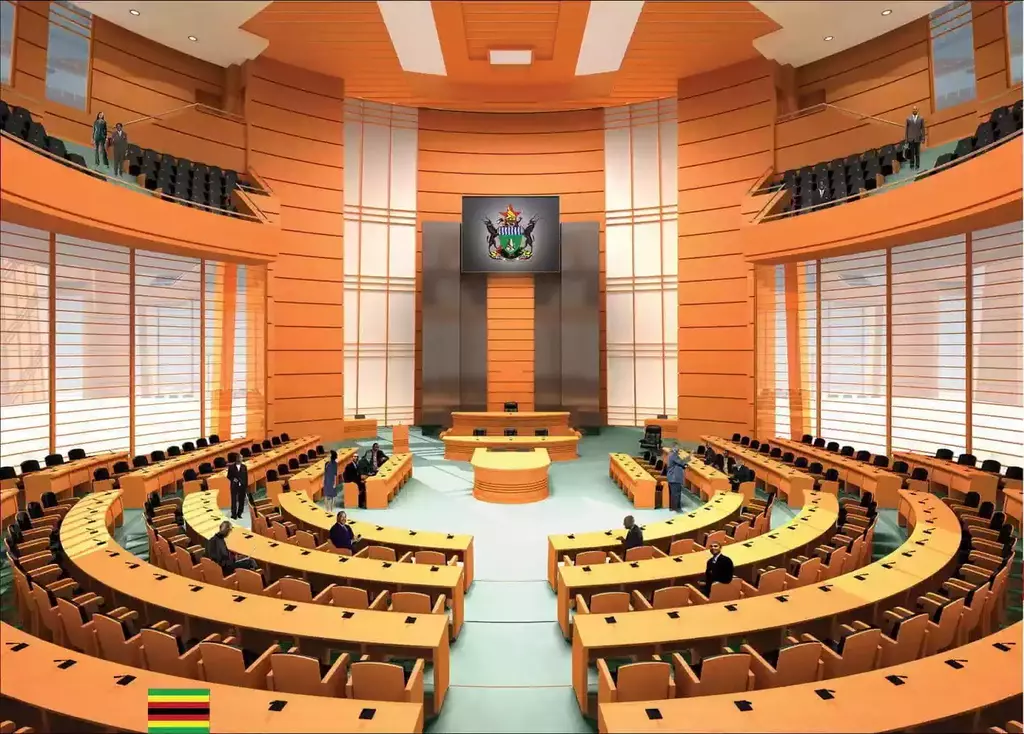Parliament of Zimbabwe

- The Parliament of Zimbabwe is the supreme legislative body of the country, responsible for making and passing laws, debating national issues, and overseeing the executive branch of government. Located in Harare, the capital city, the Parliament plays a crucial role in Zimbabwe’s political and democratic processes. It operates under a bicameral system, consisting of the National Assembly and the Senate, both of which contribute to shaping the country’s policies and governance. The Parliament building itself is an important symbol of Zimbabwe’s sovereignty and governance, reflecting the nation’s journey from colonial rule to independence.
- For many years, the Parliament was housed in the historic Parliament Building on Nelson Mandela Avenue, which dates back to the early 20th century. However, due to space constraints and the need for modern facilities, the Zimbabwean government commissioned the construction of a new Parliament complex in Mount Hampden, approximately 20 kilometers northwest of Harare. This new state-of-the-art facility, built with assistance from China, is expected to serve as the center of Zimbabwe’s legislative functions and is designed to accommodate the country’s growing political and administrative needs.
- The Parliament of Zimbabwe has played a pivotal role in the country’s political history, overseeing significant legislative changes, including constitutional reforms, economic policies, and human rights legislation. It is the primary institution where elected representatives debate national issues, approve budgets, and hold the government accountable for its actions. The legislative body consists of Members of Parliament (MPs) elected through a democratic process, as well as Senators, some of whom are appointed to represent special interest groups, such as traditional chiefs and the disabled community.
- Visitors to Zimbabwe’s Parliament can witness live debates, attend public hearings, or explore the historic architecture of the old Parliament building. The institution is essential for those interested in political science, governance, and the legislative process. As Zimbabwe continues to evolve politically and economically, its Parliament remains a cornerstone of democracy, policymaking, and national development, shaping the country’s future through legislative action and governance oversight.
